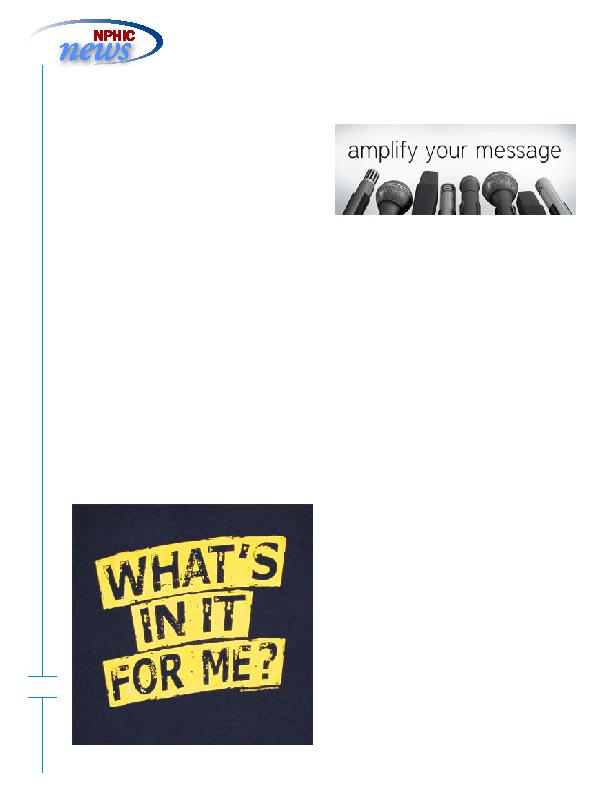
How utterly boring this must be for the reporter and the non-
public health reader.
"what's in it for me" (the reader/viewer) rather than talking
about what we in public health do. We seem to forget that the
word "you" is an incredibly powerful tool of communication.
We acknowledge the reader or viewer. "You, Joe and Josephine
Sixpack. Here's how you can benefit from good public health
practices."
Simon Sinek calls it his "golden circle." (
communication becomes much more powerful. "We do it so you
will be healthy."
do you do what you do." Several said they found their practices
challenging and rewarding. One or two admitted that money
could be a factor. Finally, an ophthalmologist said, "I do it so that
people can see better." Bingo!
du jour, the message likely will be obvious. It's not what we in
the public health agency are doing to protect or preserve health
during this particular crisis. It's what you, reader, viewer, listener,
can do to project your health. We've heard it a thousand times.
"Wash hands." "Cover your cough." And so on. But that's not front-
of-the-mind stuff for the person who comes home from a busy
day at the office and turns on the news to get the latest.
message." If I had a quarter for every time I've heard that well,
you know!
it's up to the person being interviewed to create the opportunities
to move the agenda to their comfort zone.
mistakes we make when doing interviews (long, technical
answers, just answering the question, lack of pre-interview
preparation and treating interviews as conversations).
a Hepatitis outbreak into a discussion of your public health goals
for the next year. Nor could you, in all likelihood. But you may
be able to move the Hepatitis interview into a discussion of how
viewers can protect themselves from food-borne illness, both in
the current outbreak and on a daily basis.
across the country, I've seen a good many public health brochures,
pamphlets and mailers. They have one thing in common. They
seem to talk about what the agency is doing. We are doing this